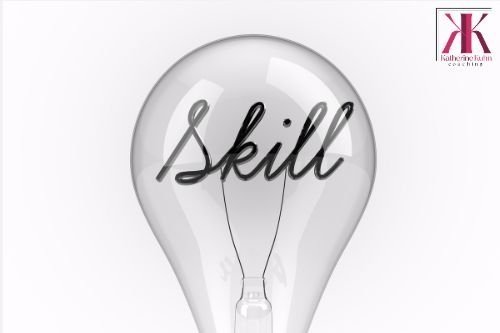
Feeling Stuck? Here’s How to Make the Leap from HR Manager to Executive Leader
If you're an HR Manager with a solid track record and a deep love for the work—but you're starting to feel like you've hit a ceiling—this post is for you.
You’re not alone.
Many talented HR professionals find themselves in this strange in-between space: too experienced for entry-level roles, yet not quite tapped for the executive table. You’ve got the skills, the credentials, and the drive… so why does the leap to executive leadership still feel out of reach?
Let’s break it down—and more importantly, let’s map your path forward.

How to Hire an HR Career Coach as an Entry-Level HR Professional
When you're just starting out in your HR career, the path to leadership can feel a little blurry. You’re trying to get your footing, make a strong impression, and figure out what success even looks like in this field.
One powerful way to gain clarity and accelerate your growth? Hiring a career coach—early.
While coaching is often associated with senior executives, entry-level HR professionals can benefit just as much, if not more. The right coach can help you develop the mindset, strategy, and confidence you need to build a long, successful career in HR.
Here’s how to hire an HR career coach that can help you grow from where you are to where you want to be.

Top Transferable Skills for Entry-Level HR Professionals
Set Yourself Apart in the HR World—Before You Even Land the Job
Breaking into the field of Human Resources can feel like a chicken-and-egg situation: you need experience to get the job, but you need the job to get experience. The good news? You likely already have a wealth of transferable skills that can set you apart as a top candidate—even if you’ve never worked in HR before.
Here’s a look at the top transferable skills that entry-level HR professionals need to highlight on their resumes, in interviews, and during networking conversations.

How to Land an HR Role Without Experience
Breaking into Human Resources (HR) without prior experience might seem like a daunting challenge, but it is entirely possible with the right mindset, strategy, and action. Whether you're a recent graduate, pivoting careers, or returning to the workforce, here are proven steps to help you land your first HR role.

Networking and Relationship Building: Unlocking Opportunities in HR
In human resources, people are at the heart of everything we do. Whether it’s hiring the right talent, fostering employee engagement, or navigating organizational change, strong relationships are the cornerstone of success. For HR professionals, networking - both internal and external - is not just beneficial, it’s essential. It can open doors to new opportunities, provide access to mentors, and build the professional connections that make HR work rewarding and impactful. This blog explores the importance of networking and relationship building in HR, with actionable tips to help you expand your professional circle and make meaningful connections.

Career Development and Continuous Learning in HR: Charting Your Path to Success
Human resources is a dynamic field, constantly evolving in response to changes in the workforce, technology, and legal landscapes. For HR professionals, career development and continuous learning are not just optional - they’re essential for long-term success. This blog explores various career paths in HR, the importance of setting personal and professional goals, and how certifications and continuing education can propel your career forward.

Understanding Company Culture and Its Impact on HR Practices
Company culture is more than just a buzzword; it’s the foundation of how an organization operates, communicates, and grows.

Building Foundational HR Skills: Core Competencies Every New HR Professional Should Master
Starting a career in human resources requires a solid foundation in core competencies that support the organization and its people. Building these foundational skills will enable you to effectively handle your responsibilities and grow as a valuable HR professional. Here, we’ll explore four essential areas: recruitment, onboarding, employee relations, and HR compliance basics.

Thriving in HR: Navigating Early Challenges with Confidence and Skill
Navigating the early challenges in HR requires resilience, flexibility, and a proactive approach. It’s natural to feel moments of self-doubt, but remember that you’re in a unique position to impact the workplace positively. Every challenge you overcome is an opportunity to learn and grow, making you a stronger HR professional.

